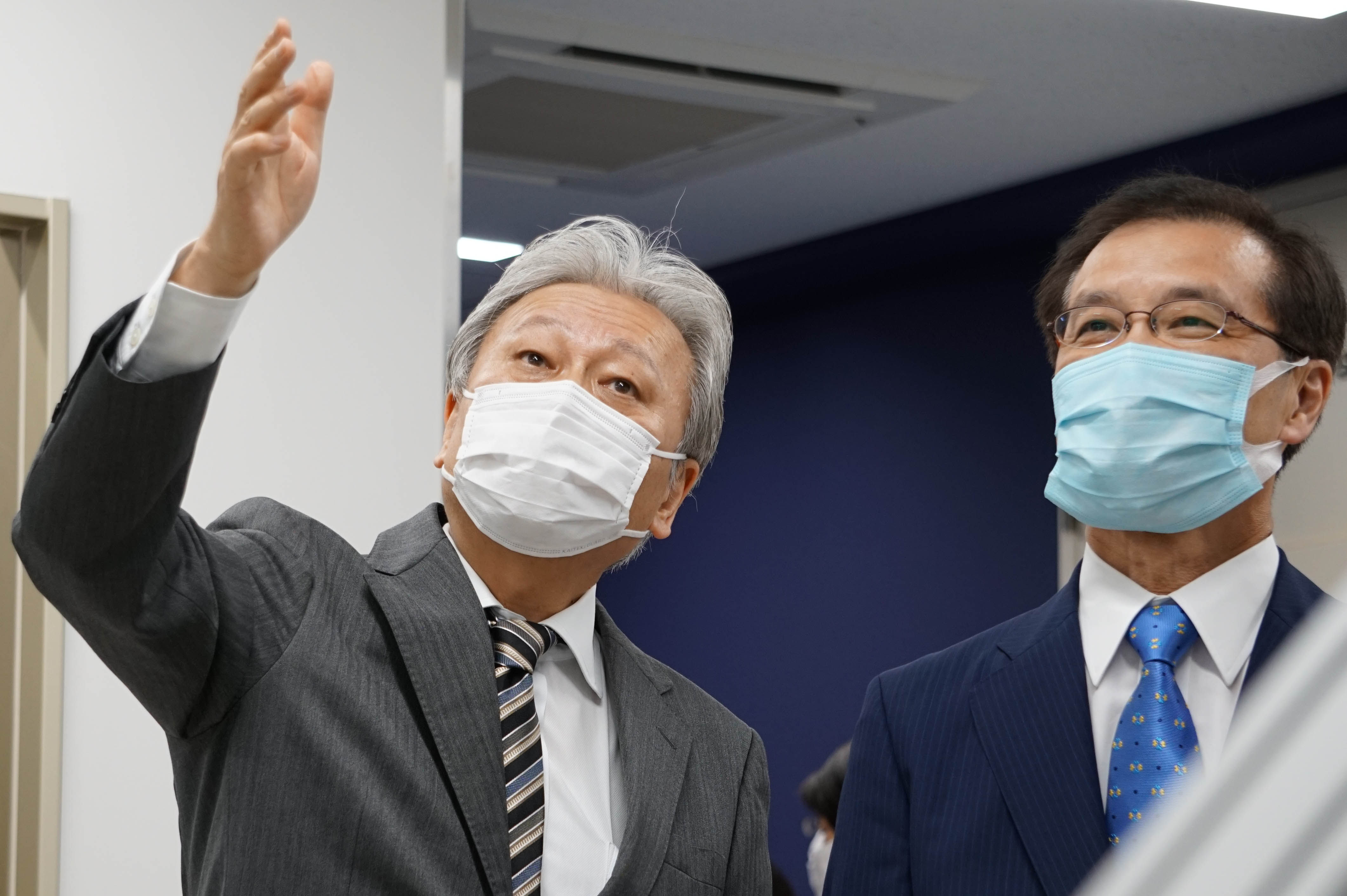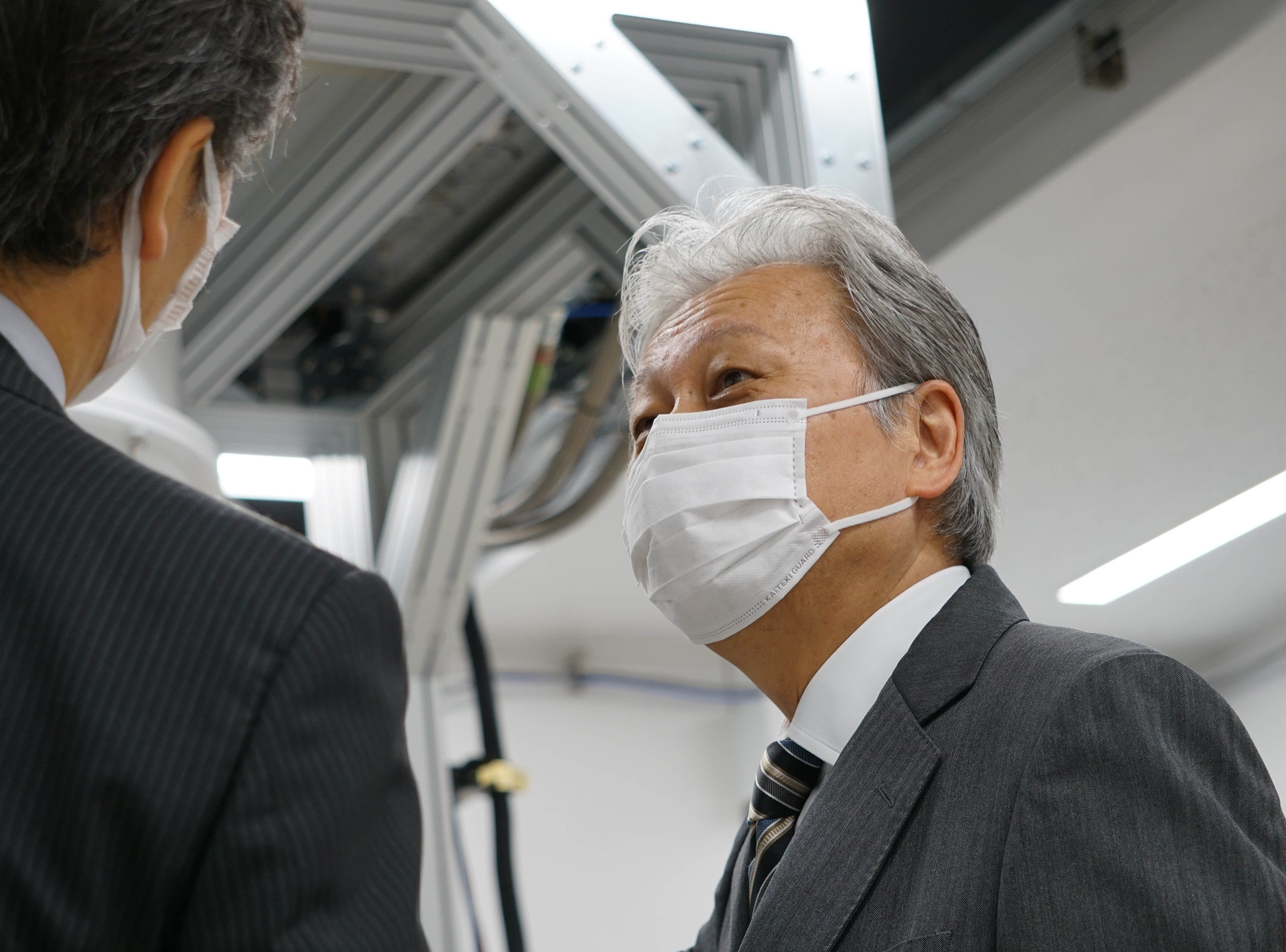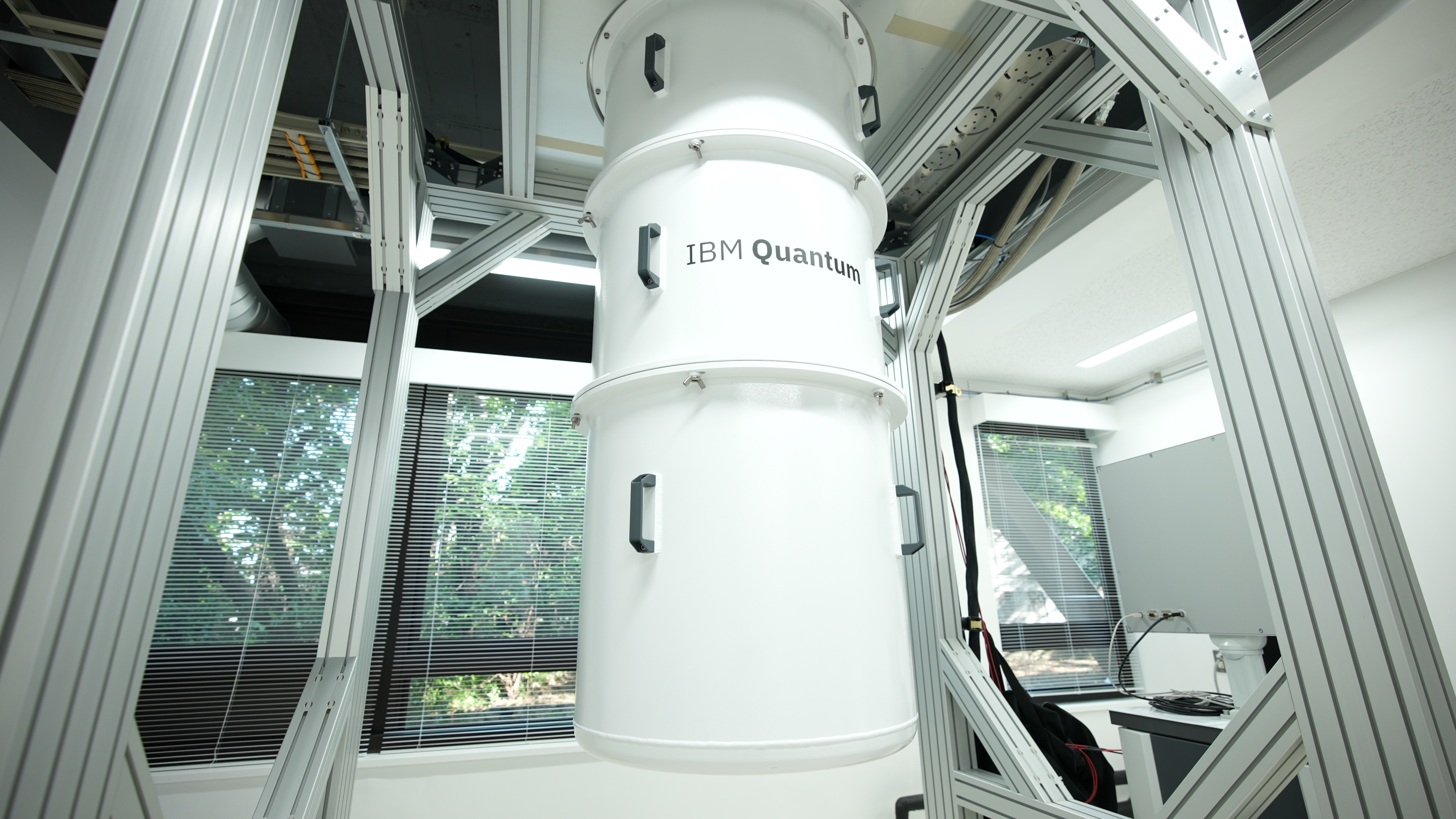DATE2021.06.10 #News
Opened Quantum Computer Hardware Test Center
Disclaimer: machine translated by DeepL which may contain errors.
IBM's first attempt to establish a quantum systems testbed in Japan
Overview
The University of Tokyo and IBM have announced the opening of The University of Tokyo - IBM Quantum Hardware Test Center, a hardware test center for research and development of future quantum computer technology, on the Asano campus of The University of Tokyo. The University of Tokyo - IBM Quantum Hardware Test Center, a hardware test center for research and development of future quantum computer technology, has been established at the University of Tokyo's Asano campus.
IBM's establishment of Japan's first quantum systems testbed at The University of Tokyo is intended to accelerate the development of future quantum computers in Japan through industry-academia collaboration.
For more information on the press release, please visit the website of The University of Tokyo.
Quantum System Testbed at The University of Tokyo
 Professor Emeritus
Professor Emeritus
Professor Emeritus Hiroshi Fukuyama of The University of Tokyo played a key role in the installation of the Quantum System Testbed at the University of Tokyo's Asano Campus, working with IBM from the design and installation of the testbed.
The base facility for the superconducting qubit quantum computer is a helium-3-helium-4 dilution refrigerator that creates a cryogenic environment of 10 milli-Kelvin ( 1/100th of a Kelvin to absolute zero). The most difficult part of the project was that, with both IBM and The University of Tokyo under strong activity restrictions due to the COVID-19 pandemic, we had to complete (1) the selection and securing of laboratory space, (2 ) the basic design of the laboratory and ancillary facilities, and (3) the main design and construction in a very short period of only seven months. The main challenges were In particular, the purpose of using a quantum computer was something that we had never experienced before, and we had to make a lot of decisions on our own half out of the blue, since we could not necessarily hold timely meetings due to the restrictions imposed by the pandemic. We are relieved to hear that both IBM and The University of Tokyo are satisfied with the hardware test center, which is now officially in operation after overcoming these difficulties one by one. We sincerely hope that in the near future, research results originating in Japan will be disseminated to the world from here. We would like to thank the Graduate School of Science and Oriental Giken Kogyo Co. Without them, the start of operations would have been delayed by at least six months, without a doubt. said Professor Emeritus Professor Fukuyama.
The opening of this test center is based on the Japan-IBM Quantum Partnership announced by IBM and the University of Tokyo in December 2019 and is one of the three main parts of this partnership. In line with this, the Cryogenic Research Center will also be equipped with an IBM test bed and related equipment, which is expected to be used for student education and research activities in the future.
The IBM test bed will focus on the development of quantum computing technology using "real machines" that are half-focused on superconducting qubit-type quantum computer technology, which is leading the way toward practical applications. The joint research themes to be conducted will be highly selective. I think this is the direction in which we are aiming for the peak in the global competition for the practical application of quantum computers. On the other hand, the dilution refrigeration system and the cryogenic microwave experimental electronics, which were introduced at the same time at the Cryogenic Research Center of Computational Materials Science with a government grant, are not directly for quantum computation, but are used for basic research on quantum systems and quantum materials, which are candidates for future qubits, as well as for the extension of coherence time of qubits and faster information transmission. However, it is possible to verify and experiment with ideas that will lead to quantum technological innovation in a broad sense, such as basic research on quantum systems and materials that are candidates for future qubits, extension of the coherence time of qubits, development of faster information transmission methods and various quantum sensors, and so on. Basically, anyone, including companies, can use this facility, and students can also conduct experiments by applying through their academic supervisors. The University of Tokyo's Quantum Initiative is aiming to become the "Hardware Dojo" of the University of Tokyo. We hope that new technologies that have been validated here will move on to the next stage of practical experiments using the IBM testbed."
Other parts of the partnership include joint IBM-University of Tokyo research on quantum theory, software development, and education, and is positioned as a Japanese industry-academia collaboration program to advance quantum computer research and development.
 Professor Emeritus Professor
Professor Emeritus Professor
I have no experience in research directly related to quantum computation, but I am amazed at how technology has advanced to the point where the basic concepts of quantum mechanics, such as entanglement of quantum states and coherence (spatial and temporal conservation), can actually be used in quantum computation. I am amazed at how far technology has advanced to the point where basic concepts of quantum mechanics, such as tantalum (tangle-free), coherence (space and time preservation), and quantum computation can actually be used. It may be that basic research in the 21st century has almost degenerated into applied research, but this is not the case. However, we should never forget that this is the result of the steady accumulation of basic research. It may seem paradoxical, but I urge you to go forward with your own basic research with confidence. With a solid foundation, application is not so difficult, and while some may be active in making the switch, others may seize the opportunity to do so when they find a job or retire. In any case, The University of Tokyo is certainly a blessed environment where the door to quantum innovation is ready for you as soon as you think of it."
With Professor Emeritus Professor Fukuyama's message in mind, the Graduate School of Science and School of Science will continue to develop new quantum computer technologies and foster young talent.



